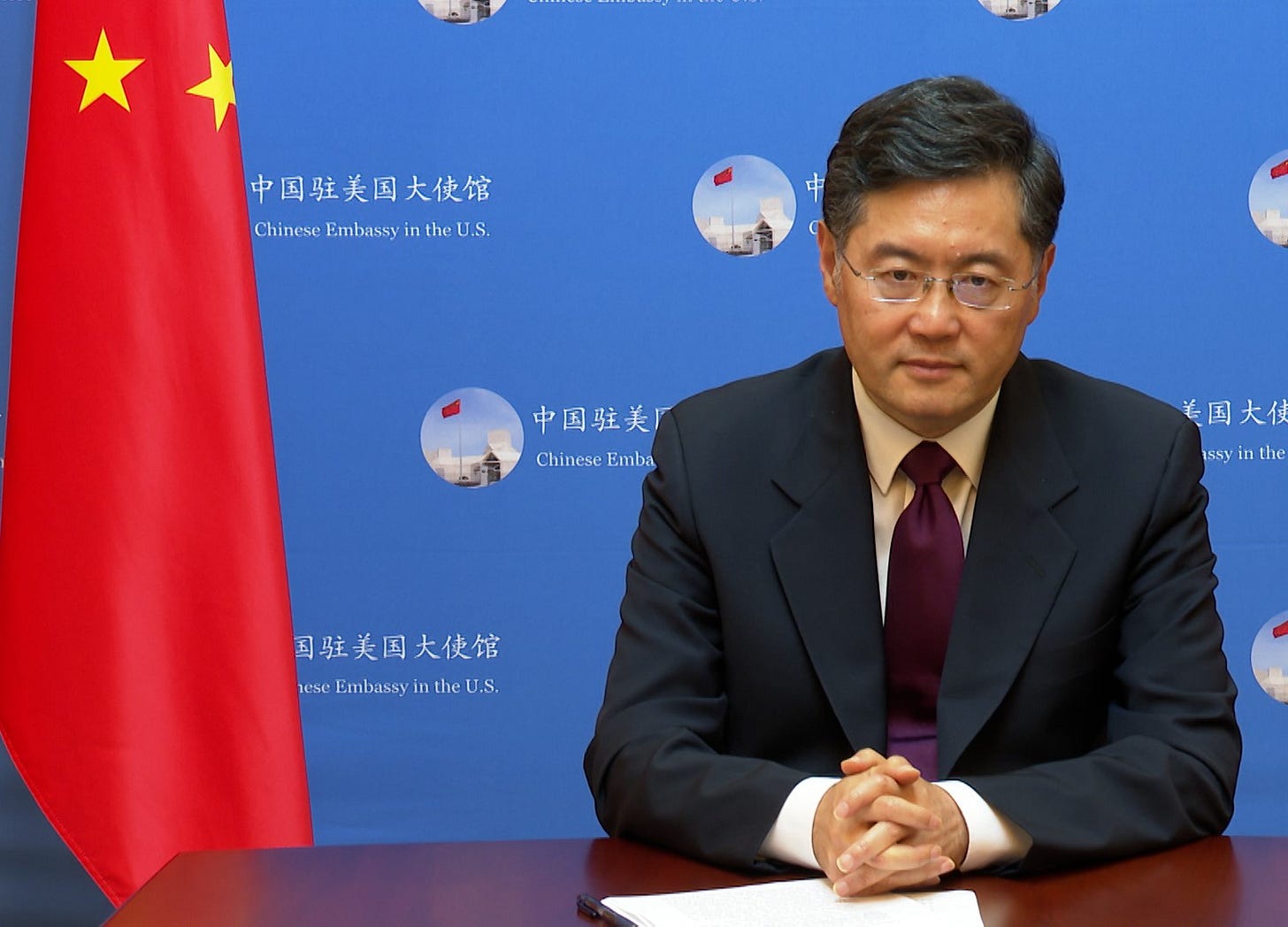What does the appointment of a new Foreign Minister mean for China's foreign policy?
#51: With Carla Freeman, David Bulman, Yun Sun
Thank you for reading The Hundred, a newsletter in which 3 experts answer 1 important question in 100 words. The newsletter is available to everyone free of charge. If you would like to support the project, subscribe below.
Shortly after Xi Jinping secured a third term in power as General Secretary of the Chinese Communist Party, he appointed Qin Gang as his new Foreign Minister. Since the last change in the post dates back more than a decade, analysts and policymakers are trying to figure out what Qin Gang’s appointment will mean for Chinese foreign policy.

“Changes atop China’s diplomatic hierarchy support Beijing’s intensifying pursuit of its ambitious foreign policy agenda. Qin Gang becomes foreign minister under Wang Yi, now China’s most senior diplomat. Qin, a product of China’s educational system and foreign ministry ranks, lacks Wang’s diverse experience but has distinct attributes. Qin worked closely with Xi Jinping when scheduling Xi’s overseas travel. A thespian diplomat, Qin can pivot from bombastic wolf warrior diatribes to choreographed panda diplomacy. Beijing is banking on disciplined loyalty and skills like these as it asserts its widening interests and campaigns against the West for a new global security order.”

“Party centralization and Xi personalization trends in China argue against over-interpreting the importance of a new foreign minister. Yet Qin Gang’s background and demeanor may hint at the potential for a new global charm offensive, particularly towards the United States. His appointment after serving as U.S. Ambassador implies a recognition that this bilateral relationship has been mismanaged—his predecessor was the first foreign minister since 2003 without US experience. And as a former spokesman, Qin knows how to play to his audiences, and his generally calm demeanor hints at China’s recognition that aggressive wolf warrior rhetoric has backfired globally.”

“Foreign Minister Qin Gang’s promotions, from U.S. ambassador to Foreign Minister to State Councillor, are unprecedented in recent history. In 21 months, he has risen from the vice-ministerial to the vice-national bureaucratic ranking. His promotions attest to a strong preference for the style and direction of his diplomatic approach, characterized by a combination of diplomacy and assertiveness, from the top leadership. Qin’s relatively young age—he is currently 57—means that he will oversee China’s foreign policy and loyally follow and implement the top leader’s vision without deviation or internal split for at least the next ten years.”
Further reading:
Why Did China Banish Its Chief ‘Wolf Warrior’? Foreign Policy, James Palmer
In Xi’s ‘New Era,’ China’s Foreign Policy Centers on ‘Struggle’. The Diplomat, Shannon Tiezzi
Interpreting China’s Diplomatic Shifts. The Diplomat, Brian Wong
That’s it for The Hundred #51. Please share this post with friends and colleagues if you found it interesting. To support the project, subscribe.




